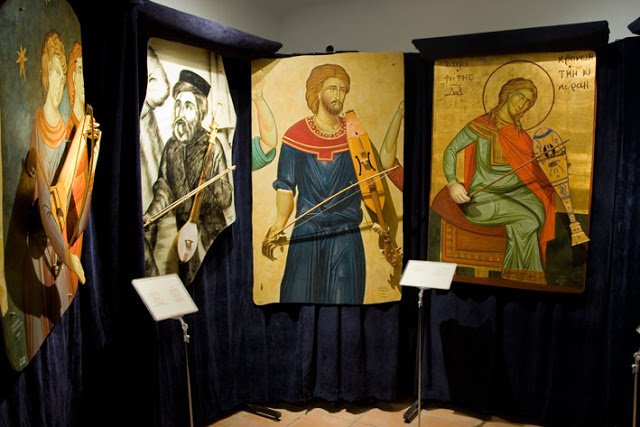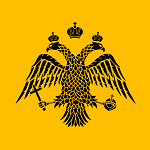Roman-Byzantine Choir in Ispra - Irini Pasi Ensemble
Roman-Byzantine Choir
14 June 2014 at 20:30
Chiesa di San Martino, Ispra
Admission Free!
Poster [PDF]
Flyer [PDF]
Booklet [PDF]
On the occasion of the Hellenic presidency of the European Council, the local Organizing Committee of the “Hellenic Semester 2014” at the JRC Ispra and under the auspices of the Orthodox Churches of Saint John the Baptist in Turin and Varese and the Pastoral Community Santa Teresa Benedicta of the Cross in Ispra
The Turin-based group "IRINI PASI ENSEMBLE" will offer a choir of psalms of early Christian origin known as Roman-Byzantine chant.
The purpose of the event is to introduce to the public a musical heritage of immense spiritual, cultural and anthropological value.
The Roman-Byzantine chant expresses the identity of the Mediterranean peoples, the values cultivated within the early Christian communities, the friendship with God, that Italy has known from the teachings of the Apostle Paul, upon his arrival in Rome.
The Roman-Byzantine chant in its richness and expressiveness in 8 tones, in plagal fourth tone, celebrates the divinity of Christ as the sign of the union between heaven and earth, between God and humanity and of the harmony between humans.
The group will sing, in classic greek and italian, troparia and hymns that are part of the liturgical year of the Orthodox tradition.
 |
 |
| |
 |
1.Πολυέλεος / Merciful 2.Χριστὸς Ἀνέστη / Christ is risen 3.Τὴ Ὑπερμάχω / To you invincible 4.Ὦ γλυκύ μου ἔαρ / O, my sweet spring 5.Ἁγνὴ Παρθένε /Pure Vergin 6. Μεθ’ ἡμῶν ο Θεός / God is with us |
"An echo of the harmony and beauty of God is reflected in the hierarchy of beings in heaven and from this down on the earth in the hierarchy of the Church. And if the music of the hymns sung by the Seraphim in heaven is transmitted to those who possess the divine inspiration, prophets and saints, and from these to the composers of liturgical hymns, then the hymns of the Church are nothing more than the songs of heaven sent to earth and made perceptible to the same members of the ecclesiastical hierarchy. Then the singer is obliged to follow the model of an already existing hymn that reached the Church by divine revelation"
From the Celestial Hierarchy, the work of Christian mystic Dionysius the Areopagite



















